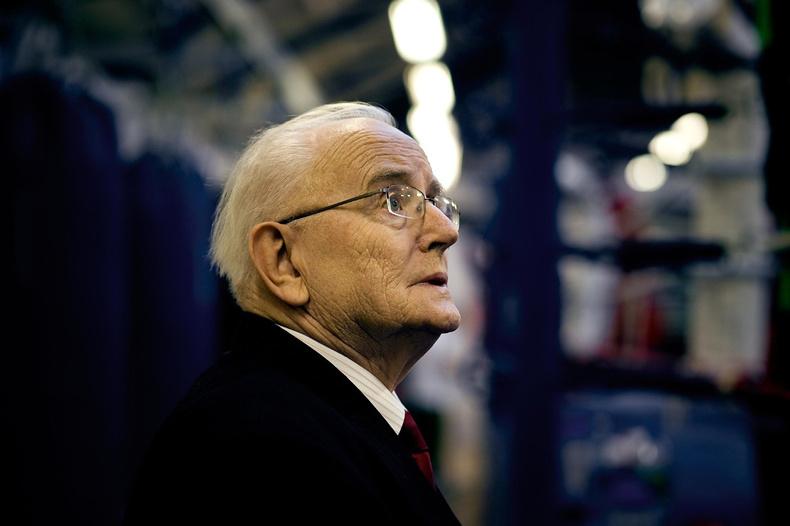When Jimmy Magee returned each summer to RTÉ Radio One’s Sunday Sport over the years, it was like the arrival of the swallows from Africa. There was a warmth to that great voice, that made us feel summer had truly arrived and the GAA championship season was ready to roll.
No one could anchor it better than Jimmy. That old familiarity and sense of humour drew us in like none other. Jimmy was meant to be born in the era of radio. He painted pictures with words.
There were many people who preferred to listen to Jimmy’s pulsating boxing commentaries on radio than watch the fights on television. His enthusiasm was infectious, his knowledge unbeatable.
Listening to his legendary commentary on RTÉ radio as John Treacy from Waterford won an incredible silver medal at the Los Angeles Olympics in 1984, remains fresh in my mind. I was driving back through the night to Mayo from Crotty’s of Leamybrien and the magic created by Jimmy has endured down the years.
Another golden memory comes from the summer of the following year, 1985. The great Dermot Earley had just played his last game for Roscommon in the Connacht Final in Hyde Park. Mayo had just recorded a comfortable win to take provincial honours.
It was a measure of the respect the Mayo lads had for Dermot that they carried him shoulder high at the end of the game, an instinctive display of the affection in which the neighbouring counties held this warrior of western football.
Dermot was brought up to the press box to do a live interview with Jimmy Magee, who was back in the studio in Dublin. It remains the most emotional interview I have ever heard in GAA history. Dermot felt at home with Jimmy. Tears were shed across the airwaves and all over Ireland that evening.
Outside of sport, Jimmy’s abiding love was country music. Along with Mick Clerkin of Cavan, he founded Release Records, which was the label that pioneered the country music boom in Ireland in the early 1970s. A little earlier in the mid to late 1960s, the Jimmy Magee All Stars raised thousands of pounds for various causes.
The All Stars comprised of the leading showband singers and musicians who lined out against some of the leading GAA players of the era. The Magee All Stars rolled into towns and thousands turned out to see them. Brendan Bowyer, Doc Carroll, Seán Dunphy, Dickie Rock, Brendan O’Brien, Tom Dunphy, Gene Stuart, Harry Ramsbottom, Mickey Brady, Earl Gill (who recorded a song about The Jimmy Magee All Stars called Showball Crazy) and a host of others all played with the Jimmy Magee All Stars.
Jimmy Magee penned the sleeve notes for Tom Dunphy’s debut album, Tom Dunphy Country, which was released in 1970.
“Tom’s easy-going charm, perpetual good humour and willingness to help out over and above the call of duty, are attributes that place him sky-high in my personal assessment of human beings. I’ve gotten to know him well from our Monday night outings with the All Stars. I want to thank him for including one of my all-time favourites, Miller’s Cave, on this album,” is a brief excerpt from the cover.
Tom, from Waterford, died in a road accident near Annaduff, a few miles from Carrick-on-Shannon, on 29 July 1975. In July 1978, the Jimmy Magee All Stars erected a stone monument at the spot where Tom died in Co Leitrim.
The inscription reads: “Erected to the memory of Tom Dunphy, one of Ireland’s leading country music stars, who was fatally injured near this spot on 29 July 1975, aged 39 years. The melody lingers on. Ní bheidh a leithid arís ann.”
Jimmy never lost his love for Louth. He had a wonderful sense of place and of belonging, and he never lost the run of himself. He was at all times a man of the people, blessed with a gift for words that touched emotions and kindled the most enduring of flames.
The Irish sporting world and his many friends in country music over the years have lost a true friend with the passing of Jimmy Magee. He was a one-off and a real legend. We will not see his likes again. CL






 This is a subscriber-only article
This is a subscriber-only article












SHARING OPTIONS: